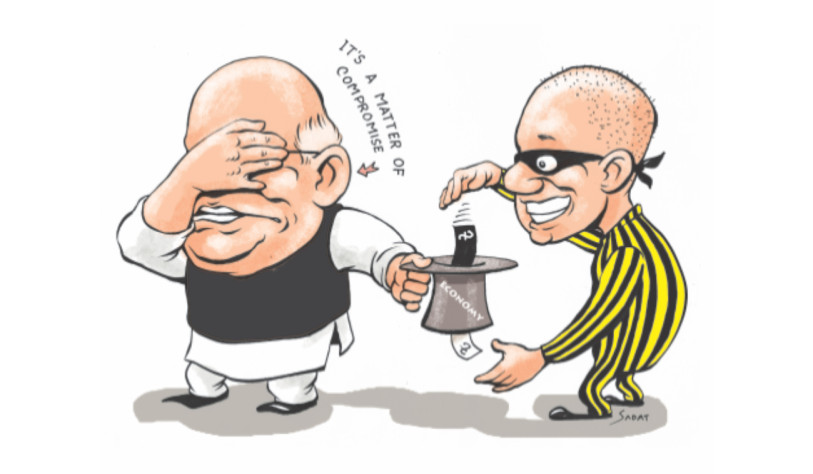
The Centre for Policy Dialogue yesterday urged the government to formulate a law to bring into the mainstream economy black money and benami properties bought in and outside the country.
The think-tank made the proposal saying it found that ad hoc fiscal measures to whiten black money had failed to do so.
“It is now important to formulate a predictable legal framework where tax rate should be above the marginal rate,” Dr Debapriya Bhattacharya, distinguished fellow of the CPD, said at a media briefing at the Cirdap in the capital.
Debapriya said this in response to reporters’ queries on black money, capital flight and benami properties (bought in the name of someone else, not the one who financed it).
The CPD yesterday shared its independent review on Bangladesh economy for the outgoing fiscal year. CPD Executive Director Prof Mustafizur Rahman was also present there.
Debapriya said if enacted, the law would make the entire process transparent, and there wouldn’t be any need to ponder over the issue of money whitening every year.
In its 2014 report, Washington-based Global Financial Integrity cited that $13.16 billion (Tk 102,648 crore) was illegally moved out of Bangladesh between 2003 and 2012.
Explaining why such a law is needed for Bangladesh, Debapriya said anti-money laundering measures were not giving solutions to the issues of capital flight and overseas investments by Bangladeshis. Besides, the National Board of Revenue doesn’t have any mechanism to find out about the properties of Bangladeshis outside the country.
The law must ensure that the life of an honest taxpayer gets easier, and those who want to disclose untaxed money and benami properties can do so without any hassle, he said.
The economist said if one didn’t disclose black money, super tax rate (two or three times the usual rate) should be imposed on them.
Referring to benami properties, he said if the real owner didn’t disclose it, the person against whose name it had been bought should be made co-owner of the property.
This type of law is not rare in the world. Neighbouring India enacted Benami Transactions (Prohibition) Act in 1988, which was amended this year to put an end to such transactions, and empower the government to recover such property, he said.
Source: The Daily Star









